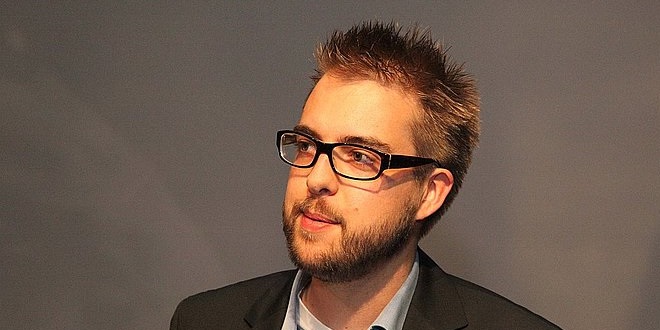As further market proof of the power of Drupal in the enterprise, Acquia has received about $100 million in funding in the past 3 months, which puts its valuation at over $1 billion.
There’s a lot of buzz about the Amazon acquisition of TWITCH this week. As a personal friend of the original investor, I’m very happy for this transaction – after 7 years of work, repositioning, and sticking to it their vision has paid off. But that’s a different article…
Less prominent in the news, but possibly more important, is Amazon’s investment in ACQUIA. Acquia, Inc. is the for-profit company founded by Dries Buytaert, the inventor of Drupal, to support his open source project. Drupal was launched in 2001, and Acquia started in 2007. When Open Source software projects are launched, the progenitors often start a for-profit sister company to garner some income from training, support and consulting. Because they are open source. the original products can’t generate revenue, so when these OS projects occassionally blow up into phenomenons like Drupal and WordPress have over the past few years, it’s gratifying but also quite frustrating to watch others derive so much value from your baby while you toil away to lead its growth with no financial return. Plus, there are tons of expenses like servers, bandwidth, office space, travel and the time of many professionals.
Red Hat was one of the first of these types of companies bridging open source with big finance, leveraging Linux support into a profitable business, also leveraging the enterprise. They kind of invented this business model. Sun Microsystems and others almost made it happen, but they were only semi-free. Google has optimized this open source to freemium model in almost all of its products.
But Drupal has succeeded way beyond it’s original expectations. It was originally started as a college dorm project, where many of the best products on the web seem to hatch. It gained recognition during the 2004 presidential campaign when Howard Dean’s IT director decided to use it as a platform for community and campaigning. After that it quickly gained credibility and spread throughout government, and corporate America.
Drupal is now driving some of the largest and most critical websites in the world, including The White House, The Oscars, Twitter, Mercedes Benz, Warner Music Group, The Louvre Museum, The City of Los Angeles and Stanford University. Over its 13 year life the web has vastly changed from primarily static pages to dynamic database driven automated (“rendered”) web page serving, which Drupal excels at. The average website size has also greatly increased, aided by automated rendering systems like Drupal and others. The term Content Management System has become mainstream in everything from the Fortune 500 to small businesses.
Some of Drupal’s success has come from luck, but most of it has been because of strategy and excellent timing. Dries has carefully pushed the technology not to the bleeding edge, but towards the modern edge where enterprises are comfortable. He and his team have avoided many temptations to try new fads, make big changes and try to grow faster. Currently they face enormous pressure to innovate faster, and are responding with Drupal 8, which will incorporate many new modern web architectures previously not part of the Drupal platform.
Acquia has been critical in supporting, guiding, enhancing and positioning Drupal for the past 7 years. It was a startup that launched with funding from day one and has never looked back.
Amazon’s motivation in buying into Acquia is a bit more self serving. Acuia provides premium, high security, supported hosting to it’s customers, which all runs on top of Amazon AWS. Amazon can see that some of AWS most robust and challenging work comes from Acquia with Drupal. For example, Acquia runs its Drupal infrastructure on more than 8,000 AWS instances and serves more than 27 billion hits a month (or 333TB of bandwidth). Amazon has a strategic value beyond many other companies or VCs in their investment.
What will come next? Will Amazon try to acquire all of Acquia before the inevitable IPO? I think we can bet on that.
This is a very contemplative time for Buytaert – he has fierily protected Drupal’s independence and strategic positioning, taking risks but protecting his large customers from drama, can he keep Amazon and Bezos at bay? I have no doubt he will, for he is a true “Startup CEO”, even though his title is CTO at Acquia.
@tomnora
more info on the funding round from @thewhir http://j.mp/nora-acquia

Hello Tom, Amazon got it right, the age of WordPress is clearly coming to an end, and Drupal is a good contestant to claim the throne for two reasons: Is good, has been around for a while. But I strongly believe this opportunity will be taken by a new player.